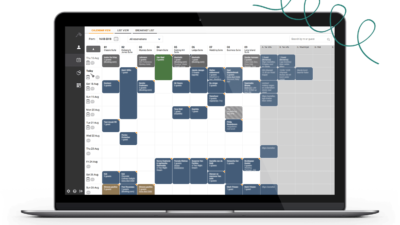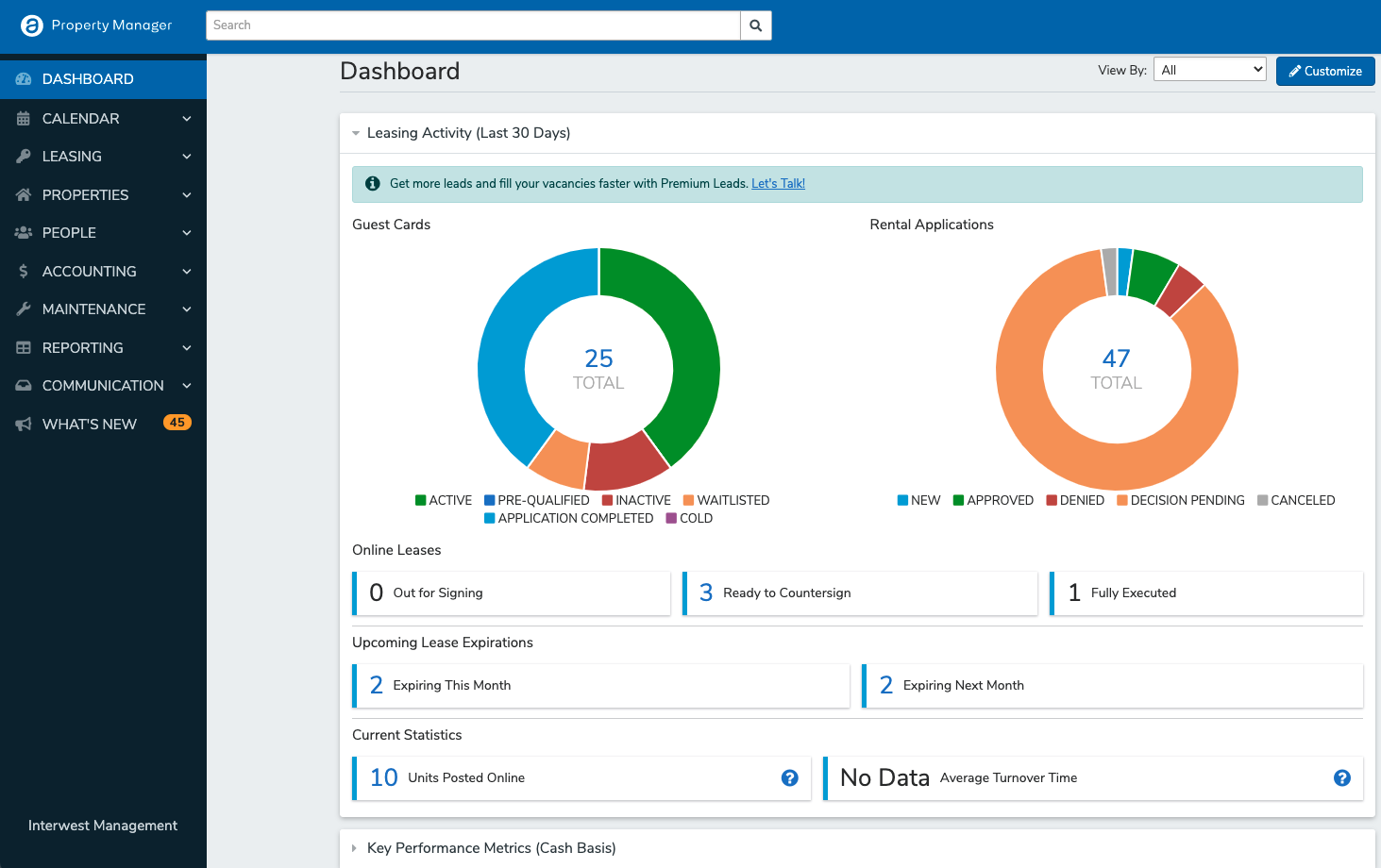
In today’s fast-paced world, managing properties efficiently and effectively is more critical than ever. Property manager software has emerged as a game-changer, revolutionizing how property managers handle their daily tasks, interact with tenants, and oversee their portfolios. But with so many options available, choosing the right property manager software can feel like a daunting task. This thorough guide will delve into the world of property manager software, exploring its benefits, key attributes, and how to select the optimal solution for your unique needs. Whether you’re a seasoned property manager or just starting out, this article will offer you with the knowledge and insights you need to make informed decisions and maximize your property management operations.
The Rise of Property Manager Software: Why Now?
The property management landscape has evolved dramatically. Gone are the days of relying solely on spreadsheets and manual processes. Today, property manager software is not just a luxury; it’s a requirement. Why? Because it addresses the multifaceted challenges of modern property management, from tenant screening and rent collection to maintenance requests and financial reporting.
Consider the sheer volume of tasks a property manager handles daily. Juggling tenant inquiries, coordinating repairs, processing payments, and ensuring compliance with regulations can be overwhelming. Property managing software centralizes these functions, providing a single platform for managing all facets of your portfolio. This not only saves time and reduces errors but also improves communication and enhances the overall tenant experience.
Moreover, the increasing demand for transparency and efficiency from both property owners and tenants is driving the adoption of property manager software. Owners want real-time insights into the performance of their investments, while tenants expect seamless online portals for rent payments and maintenance requests. Property manager software delivers on these expectations, fostering trust and strengthening relationships.
Related Post : payroll processing software
Key attributes to Look for in Property Management Softwares.
Not all property management softwares are created equal. To select the right solution for your business, it’s crucial to understand the key attributes that can make a real difference. Here are some essential functionalities to consider:
- Tenant Screening: A robust tenant screening process is vital for minimizing risks and ensuring responsible tenants. Look for software that integrates with credit bureaus and criminal background check services.
- Online Rent Collection: Streamline rent collection with online payment portals that allow tenants to pay rent electronically. This eliminates the need for manual check processing and reduces late payments.
- Maintenance Management: Efficiently manage maintenance requests with a centralized system for tracking work orders, assigning tasks to vendors, and communicating with tenants.
- Financial Reporting: Generate thorough financial reports, including income statements, balance sheets, and cash flow statements, to gain insights into your property’s performance.
- Lease Management: Store and manage lease agreements electronically, track lease expirations, and automate renewal processes.
- Communication Tools: Facilitate seamless communication with tenants and owners through built-in messaging systems and email integration.
- Integration Capabilities: Ensure that your property manager software integrates with other essential tools, such as accounting software, CRM systems, and project management software for construction.
Beyond these core attributes, consider additional functionalities like reputation management software to monitor and respond to online reviews, software asset management software to track your software licenses, and even online software for payroll if you manage employees.
The benefits of Using Property Managing Software.
Implementing property managing software can unlock a wide scope of benefits for your business. Here are some of the most significant benefits:
- boostd Efficiency: Automate repetitive tasks, streamline workflows, and reduce manual errors, complimentarying up your time to focus on strategic initiatives.
- Improved Tenant Satisfaction: offer tenants with convenient online portals for rent payments, maintenance requests, and communication, enhancing their overall experience.
- Enhanced Communication: Facilitate seamless communication with tenants, owners, and vendors through centralized messaging systems and email integration.
- Better Financial Management: Gain real-time insights into your property’s financial performance with thorough reporting tools.
- Reduced Costs: Minimize administrative overhead, reduce late payments, and maximize maintenance spending, leading to significant cost savings.
- Improved Compliance: Ensure compliance with regulations and avoid costly penalties by tracking lease expirations, managing tenant screening processes, and maintaining accurate records.
- Data-Driven Decision Making: Make informed decisions based on real-time data and analytics, optimizing your property management strategies for maximum profitability.
Choosing the Right Property Manager Software: A Step-by-Step Guide.
selecting the right property manager software can feel overwhelming, but by following a structured approach, you can make an informed decision that aligns with your business needs. Here’s a step-by-step guide to help you navigate the process:
1. Assess Your Needs: Start by determineing your specific requirements and pain points. What tasks do you want to automate? What challenges are you currently facing? What are your long-term objectives?
2. study Available Options: Explore varied property management softwares and compare their attributes, pricing, and user reviews. Look for solutions that cater to your specific property type and portfolio size.
3. Request Demos and complimentary Trials: Take benefit of complimentary trials and demos to get a hands-on feel for varied platforms. This will allow you to evaluate their user-friendliness, functionality, and integration capabilities.
4. Consider Integration Capabilities: Ensure that the software integrates seamlessly with your existing tools, such as accounting software, CRM systems, and paycheck software.
5. Evaluate Customer Support: select a offerr that offers reliable customer support and training resources. This will ensure that you can get help when you need it and maximize the value of your investment.
6. Read Reviews and Testimonials: Look for reviews and testimonials from other property managers to get insights into their experiences with varied software solutions.
7. Consider Scalability: select a software that can scale with your business as you grow. This will ensure that you don’t have to switch platforms down the road.
8. Factor in Payroll Processing Software: If you have employees, consider a property manager software that integrates with or includes payroll processing software to streamline your payroll operations.
The Future of Property Management: Emerging Trends and Technologies.
The property management industry is constantly evolving, driven by technological advancements and changing tenant expectations. Here are some emerging trends and technologies that are shaping the future of property management:
- Artificial Intelligence (AI): AI-powered chatbots are being used to handle tenant inquiries, automate maintenance requests, and offer personalized recommendations.
- Internet of Things (IoT): IoT devices, such as smart thermostats and leak detectors, are being integrated into properties to improve energy efficiency, prevent damage, and enhance tenant comfort.
- Virtual Reality (VR): VR tours are being used to showcase properties to prospective tenants remotely, saving time and improving the leasing process.
- Blockchain Technology: Blockchain is being explored for secure and transparent rent payments, lease agreements, and property ownership records.
- Mobile-First Solutions: Property managers are increasingly relying on mobile apps to manage their properties on the go, access real-time data, and communicate with tenants and vendors.
As these technologies continue to evolve, property managers who embrace innovation will be optimal positioned to thrive in the future. Consider exploring partnerships with software development companies to create custom solutions that address your specific needs and give you a rival edge. For those looking to enhance their skills, consider enrolling in a software engineer school online to stay ahead of the curve.
In conclusion, selecting the right property manager software is a pivotal decision that can significantly impact your operational efficiency, tenant satisfaction, and overall profitability. By carefully evaluating your specific needs, exploring the attributes offered by varied software solutions, and considering factors like integration capabilities and user-friendliness, you can make an informed choice that sets your property management business up for achievement. Don’t hesitate to leverage complimentary trials and demos to get a hands-on feel for varied platforms before committing to a long-term solution. Remember, the optimal property manager software is the one that empowers you to streamline your processes, enhance your tenant relationships, and achieve your business objectives.












